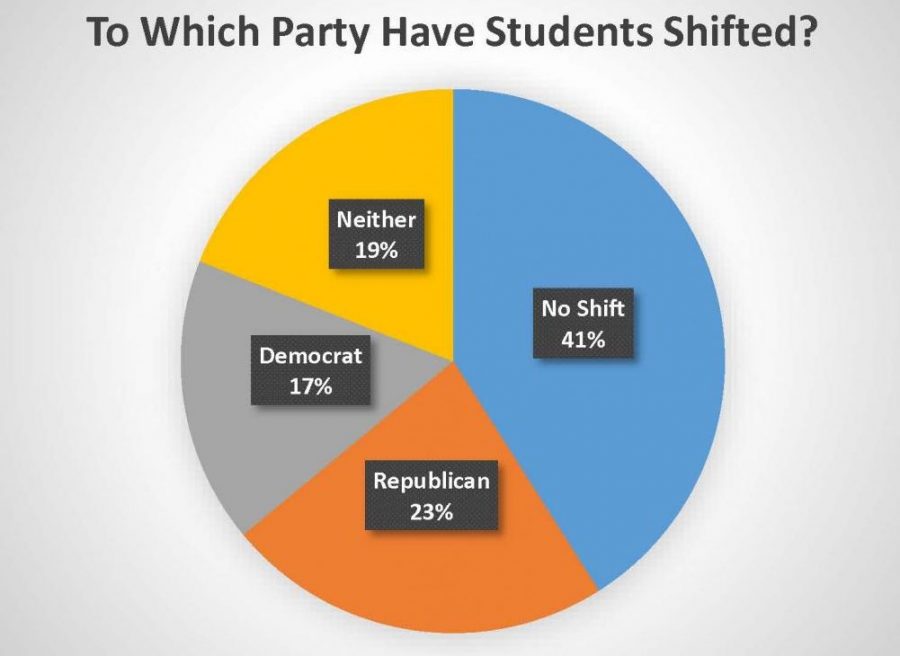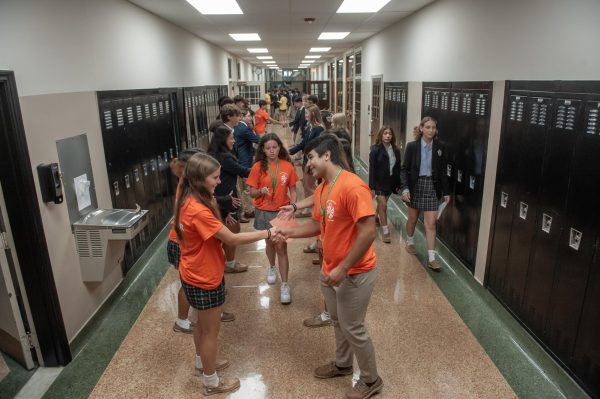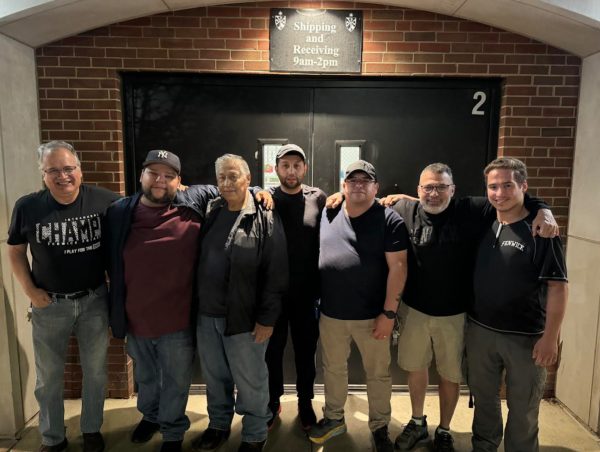Political Battle Lines Being Drawn
The upcoming midterm election on November 6th is the first opportunity for students to voice their opinion in a federal election, and students are not happy with the current political system.
In a political atmosphere which focuses on the extreme views held by the minority, seniors have felt the pressure to change their views–and responded accordingly.
In a poll conducted of 83 seniors on Friday, October 19, 59% of student voters or soon-to-be voters have noticed a shift in their political affiliations since the last election.
Social media has undoubtedly caught the attention of even students who wouldn’t normally be interested in politics. Modern politics have become a game of “this” or “that” with little acknowledgement of a third or fourth side.
In the eyes of digital politics, you’re either a member of the right who agrees with all of Trump’s policies and a blind supporter of Kavanaugh, or an extremely liberal youth with complete disregard to authority and a passion for socialism.
Seniors have become susceptible to these viral politics, as was evident on October 5th, the day on which the jury of the Van Dyke Trial released their guilty verdict, and when the school released our students early in anticipation of violent protests.
The trial infiltrated the atmosphere, forcing students to pick between an advocate for the Black Lives Matter movement, or for the “Blue Lives Matter” movement, focusing on the rights of police officers.
Many seniors have been changed by the political system. 23% of students polled that they have shifted towards Republican and 17% found themselves leaning Democrat.
But, most interestingly, not all seniors have responded extremely to the mainstream politics heightened by our media.
Of seniors who polled that they have shifted political views, 32% have shifted away from both major political parties, making up just under a fifth of the community realizing the harms of a bipartisan society and looking for the third or fourth option.
This shift likely comes in response to the shifting generational ideals of how America should be.
Seniors are some of the oldest members of Generation Z, children born between the late 1990s and around 2010.
As the importance of voting has been stressed by celebrities such as Taylor Swift, who recently broke her silence on politics by encouraging her fans to vote, the results of the midterm elections will reflect for the first time the views of Gen Z.
And Gen Z doesn’t fit into any mainstream political party.
A poll done by the Hispanic Heritage Foundation found that 80% of Gen Z are fiscally conservative, but that in areas of identity and social issues, they are liberal, supporting matters such as transgender rights and marijuana legalisation.
The influence of the media on Generation Z can’t be underestimated. But Gen Z themselves shouldn’t be underestimated either; the availability of information has increased young voter’s self-awareness.
As the rising generation realizes that the bipartisan politics currently in place doesn’t fit with their view of society, a shift away from both parties was to be expected–and was realized in the poll.
A fifth of seniors have already realized that more options need to be created, and Gen Z is only just beginning.





